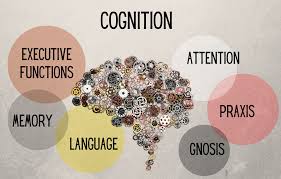Sleep is a vital component of overall health, often taken for granted or overlooked in the hustle and bustle of daily life. While the importance of a good night’s sleep for energy and mood is well-known, many people are unaware of the far-reaching effects that sleep has on various aspects of their health. In this article, we will explore some unexpected ways sleep affects your health, shedding light on its influence on everything from cognitive function to cardiovascular health and beyond.
1. Cognitive Function and Memory

1.1. Memory Consolidation
- Sleep and Memory: One of the most surprising ways sleep impacts your health is through memory consolidation. During sleep, especially during the rapid eye movement (REM) phase, your brain processes and organizes information from the day. This process helps to transfer short-term memories into long-term storage, enhancing learning and retention.
- Cognitive Performance: Poor sleep can impair cognitive functions such as attention, problem-solving, and decision-making. Chronic sleep deprivation can lead to significant declines in cognitive performance, making it harder to focus and learn new information.
1.2. Creativity and Problem-Solving
- Creative Insights: Research has shown that adequate sleep can enhance creativity and problem-solving skills. During sleep, the brain makes new connections and processes information in novel ways, which can lead to creative insights and solutions to complex problems.
- Dreams and Innovation: REM sleep, in particular, is associated with vivid dreams that can contribute to creative thinking. Many famous inventors and artists have credited their breakthroughs to dreams and the creative problem-solving processes that occur during sleep.
2. Emotional and Mental Health
2.1. Mood Regulation
- Emotional Stability: Sleep plays a crucial role in regulating mood and emotional stability. Inadequate sleep can lead to irritability, increased stress levels, and a higher likelihood of experiencing mood disorders such as anxiety and depression.
- Stress Response: During sleep, the brain processes emotional experiences and helps to regulate the body’s stress response. Chronic sleep deprivation can disrupt this process, leading to heightened stress and a reduced ability to cope with challenging situations.
2.2. Mental Health Disorders
- Depression and Anxiety: Poor sleep quality and sleep disorders, such as insomnia and sleep apnea, are closely linked to an increased risk of mental health disorders. Studies have shown that people with chronic sleep problems are more likely to develop conditions such as depression and anxiety.
- Sleep Therapy: Improving sleep quality can be an effective component of treatment for mental health disorders. Cognitive-behavioral therapy for insomnia (CBT-I) is a therapeutic approach that focuses on improving sleep patterns and addressing the cognitive and behavioral factors contributing to sleep problems.
3. Physical Health and Immune System
3.1. Immune Function
- Immune Defense: Sleep has a significant impact on immune system function. During sleep, the body produces cytokines, proteins that help regulate immune responses and fight infections. Chronic sleep deprivation can weaken the immune system, making individuals more susceptible to illnesses and infections.
- Vaccine Efficacy: Research has shown that inadequate sleep can reduce the effectiveness of vaccines. A well-rested immune system responds more effectively to vaccinations, providing better protection against diseases.
3.2. Weight Management and Metabolism
- Metabolic Health: Sleep affects metabolism and appetite regulation. Lack of sleep can disrupt hormones that control hunger, such as ghrelin and leptin, leading to increased appetite and potential weight gain. Studies have linked poor sleep with a higher risk of obesity and metabolic disorders.
- Insulin Sensitivity: Chronic sleep deprivation can also impair insulin sensitivity, increasing the risk of type 2 diabetes. Quality sleep is essential for maintaining healthy blood sugar levels and overall metabolic health.
4. Cardiovascular Health
4.1. Blood Pressure and Heart Health
- Hypertension Risk: Sleep plays a crucial role in regulating blood pressure. Poor sleep quality and sleep disorders, such as obstructive sleep apnea, can lead to elevated blood pressure and an increased risk of hypertension.
- Heart Disease: Chronic sleep deprivation is associated with a higher risk of cardiovascular diseases, including heart attack and stroke. During sleep, the body undergoes processes that help maintain heart health and repair cardiovascular tissues.
4.2. Sleep and Inflammation
- Inflammatory Response: Sleep affects the body’s inflammatory response. Inadequate sleep can lead to increased inflammation, which is linked to various chronic health conditions, including cardiovascular diseases, diabetes, and autoimmune disorders.
- Inflammatory Markers: Studies have shown that poor sleep quality can increase levels of inflammatory markers in the blood, such as C-reactive protein (CRP). Managing sleep quality can help reduce inflammation and improve overall health.
5. Hormonal Balance
5.1. Hormone Regulation
- Endocrine Function: Sleep plays a key role in regulating hormone production and release. Hormones such as cortisol, growth hormone, and melatonin are influenced by sleep patterns. Disrupted sleep can lead to imbalances in these hormones, affecting various aspects of health.
- Growth and Repair: During deep sleep, the body releases growth hormone, which is essential for tissue repair, muscle growth, and overall recovery. Poor sleep can impair this process, affecting physical health and performance.
5.2. Menstrual Cycle and Reproductive Health
- Menstrual Health: Sleep has an impact on the menstrual cycle and reproductive health. Disruptions in sleep patterns can lead to irregular menstrual cycles and hormonal imbalances. Adequate sleep supports hormonal balance and reproductive health.
- Pregnancy: Pregnant women often experience changes in sleep patterns and quality. Ensuring good sleep during pregnancy is important for maternal health and fetal development.
6. Longevity and Quality of Life

6.1. Lifespan and Aging
- Longevity: Studies have shown that good sleep is associated with a longer lifespan. Quality sleep supports various aspects of health, including cardiovascular function, metabolic health, and immune system function, all of which contribute to overall longevity.
- Quality of Life: Sleep quality directly affects quality of life. Adequate sleep improves mood, cognitive function, and physical health, leading to a better overall quality of life and increased well-being.
6.2. Daily Functioning
- Productivity and Performance: Sleep affects daily functioning, including productivity, concentration, and overall performance. Adequate sleep enhances cognitive abilities and physical performance, contributing to better work and daily life outcomes.
- Safety and Accidents: Lack of sleep can impair reaction times and decision-making, increasing the risk of accidents and injuries. Ensuring good sleep quality is essential for safety and effective functioning in daily activities.
7. Conclusion
Sleep is far more than just a period of rest; it is a crucial element of overall health that influences a wide range of physiological and psychological processes. From cognitive function and emotional well-being to immune defense and cardiovascular health, the impact of sleep on your health is profound and multifaceted. Understanding these unexpected ways that sleep affects your health highlights the importance of prioritizing good sleep hygiene and addressing any sleep-related issues. By improving sleep quality, you can enhance various aspects of your health and well-being, leading to a healthier, more balanced life.


